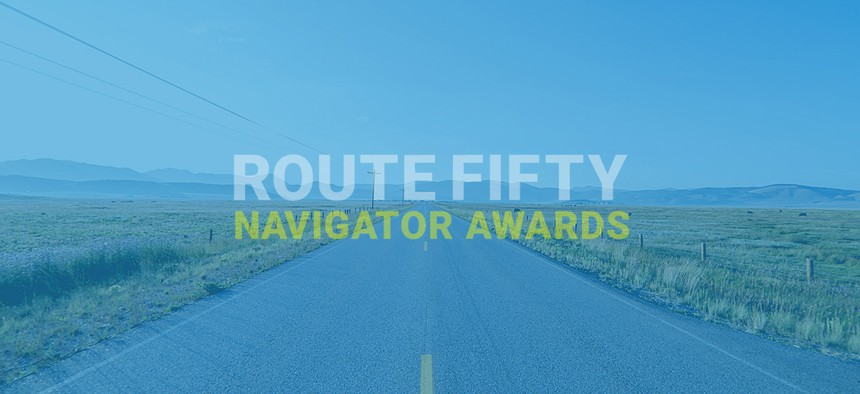Navigator Award Finalists: Stephanie Scafa and Team, City of Eugene, Ore.


Connecting state and local government leaders
The Love Food Not Waste program is gaining traction and serves as a good model for how to build community partnerships to help divert unnecessary food waste from landfills.
This is the 37th in a series of profiles on the 50 finalists for Route Fifty’s Navigator Awards program. The first 10 finalists were from the Government Allies and Cross-Sector Partners category. Finalists 11-20 were from the Agency and Department Leadership category. Finalists 21-30 were from the Executive Leadership category. Finalists 31-40 were from the Next Generation category. Finalists 41-50 are from the Data and IT Innovators category. Explore our complete list of 50 finalists .
PORTLAND, Ore. — Getting consumers to embrace more environmentally friendly habits can sometimes require a carrot-and-stick approach. And sometimes it requires a multi-pronged outreach effort that involves a street team dressed up in vegetable costumes , among more traditional marketing and public education techniques.
During a panel discussion at an Engaging Local Government Leaders Pacific Northwest regional gathering on Friday, Stephanie Scafa , a project manager with the city of Eugene, Oregon’s waste prevention and green building program, discussed her city’s successes implementing the Love Food Not Waste program, which aims to divert as much of the 40 million pounds of food waste that ends up in local landfills annually.
Food waste not only takes up room at landfills, decomposing food waste also creates methane, a greenhouse gas.
It’s a tough environmental problem and one that local governments need to tackle. But it’s also an opportunity for cities since that food waste can be turned into compost and biogas energy.
In Eugene, which originally launched the Love Food Not Waste program in 2011, Scafa, her colleagues and program partners have been working to educate the public about food waste and sign up more local businesses and other organizations to participate.
Thus far, 230 businesses, schools, non-profit groups, religious organizations and apartment buildings are part of the program, Scafa told the ELGL audience. The compost created through the program is being sold at retailers in and around Eugene, which could be used to grow more fruits and vegetables.
As Eugene’s waste diversion program continues to gain traction, there’s a larger challenge: Twenty million pounds of Eugene’s food waste is generated by residential households.
This fall, Eugene has been rolling out a voluntary residential food waste pick-up program in select neighborhoods.
That promising pilot project, which Eugene hopes to roll out citywide, builds upon the momentum of the Love Food Not Waste program that’s the result of the energy and dedication from Scafa and her team.
Route Fifty is pleased to include Scafa and her team as Navigator Award finalists in the Next Generation category.
Michael Grass is Executive Editor of Government Executive’s Route Fifty and is based in Seattle.

NEXT STORY: Navigator Award Finalists: Hayley Steele and Helen Stoddard, Love Your Block, City of Phoenix





